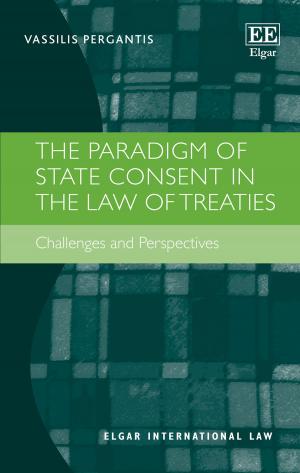Water Allocation in Rivers under Pressure
Water Trading, Transaction Costs and Transboundary Governance in the Western US and Australia
Business & Finance, Industries & Professions, Industries, Economics| Author: | Dustin Evan Garrick | ISBN: | 9781781003862 |
| Publisher: | Edward Elgar Publishing | Publication: | July 31, 2015 |
| Imprint: | Language: | English |
| Author: | Dustin Evan Garrick |
| ISBN: | 9781781003862 |
| Publisher: | Edward Elgar Publishing |
| Publication: | July 31, 2015 |
| Imprint: | |
| Language: | English |
Water trading and river basin governance have been upheld as institutional blueprints for allocating water for people, agriculture and ecosystems in a changing climate. Progress has been uneven, however, despite multiple decades of institutional reforms in river basins under pressure from demand, development and droughts. This timely book examines the evolution and performance of water allocation reforms in the Colorado, Columbia and MurrayDarling Rivers. It draws on concepts and evidence about property rights, transaction costs and institutional change to generate lessons about the factors contributing to more adaptive and sustainable water allocation.
Water trading and river basin governance have been upheld as institutional blueprints for allocating water for people, agriculture and ecosystems in a changing climate. Progress has been uneven, however, despite multiple decades of institutional reforms in river basins under pressure from demand, development and droughts. This timely book examines the evolution and performance of water allocation reforms in the Colorado, Columbia and MurrayDarling Rivers. It draws on concepts and evidence about property rights, transaction costs and institutional change to generate lessons about the factors contributing to more adaptive and sustainable water allocation.















